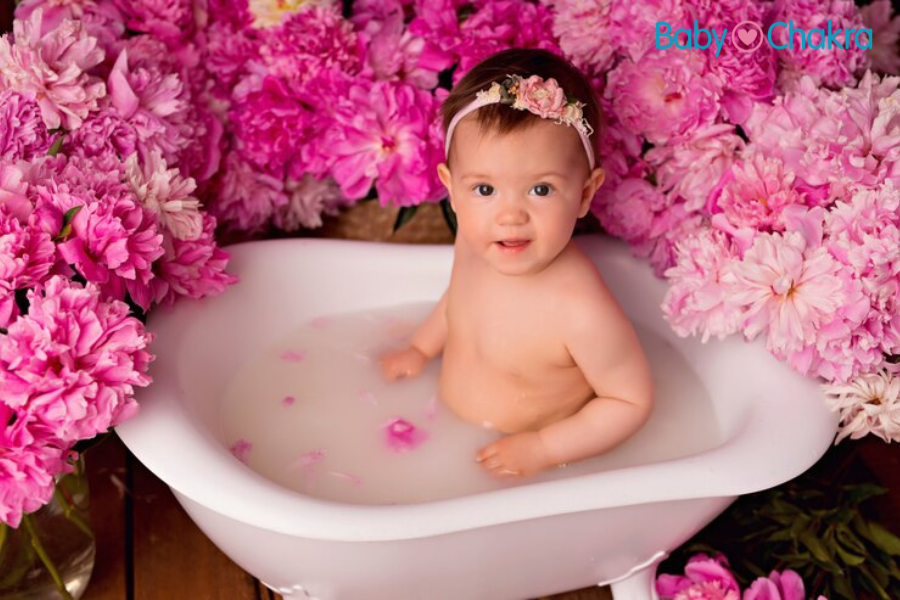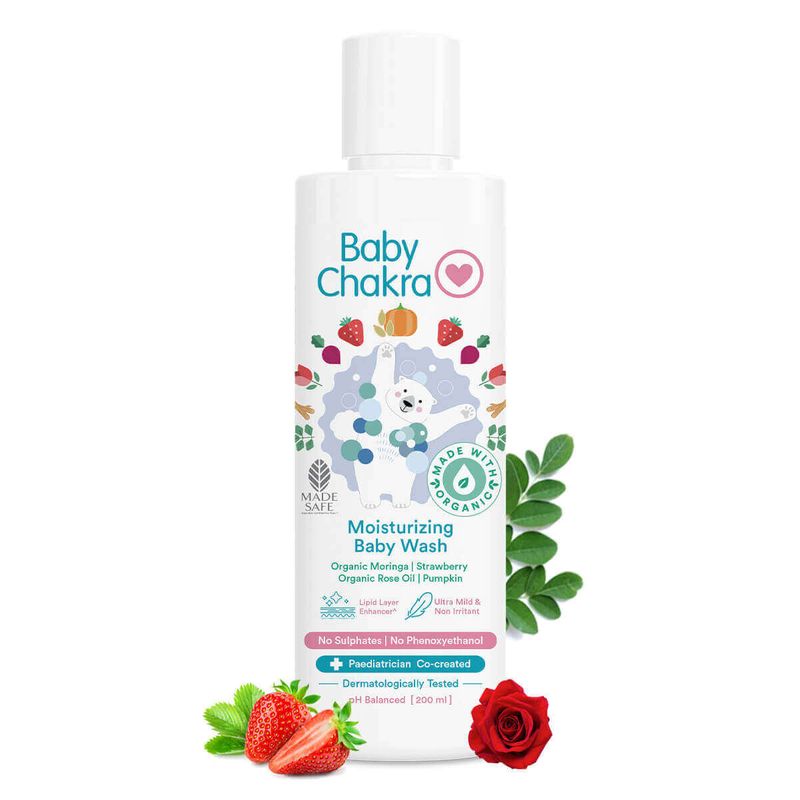
Breast Milk Baths For Babies: What Are The Benefits?
12 Oct 2022 | 4 min Read
Manisha Pradhan
Author | 1053 Articles
Breast milk is rightly termed as liquid gold as we all know about the benefits of breast milk. Breast milk is the best form of nutrition for a baby as it nourishes and protects the baby from infections as it has healing properties as well as topical benefits.
Breast milk is not only beneficial when a baby consumes it but it can also be used as a healing and soothing agent for a baby’s itchy and irritated skin. There are many benefits of breast milk baths for babies.
What Is A Breast Milk Baths For Babies?
Breast milk bath for babies is no rocket science! It’s simply adding some breast milk to warm water in your baby’s bathtub. All you need is a little bit of pumped breast milk to give your baby a soothing and healing bath. Breastmilk is packed with anti-bacterial and anti-inflammatory properties.
What Are The Benefits Of Breast Milk Baths For Babies?
Beast milk bath for babies is an age-old therapeutic remedy for healing and soothing skin issues. It contains antibodies and natural ingredients like carbohydrates, fat, protein, minerals and vitamins that are present in most natural moisturising creams and baby wash, like the BabyChakra Natural Moisturizing Baby Wash.
Breast milk bath for babies has many healing and topical benefits for most skin issues that is common in infants like:
- Dry skin
- Baby acne
- Itchy Skin
- Eczema
- Diaper rash
- Cradle cap
- Minor cuts
- Infections and blocked tear ducts
How To Use Breast Milk For Baby’s Bath?
Add just enough breast milk to warm water in your baby’s bathtub (depending on the amount of water you use in the tub) to make the water cloudy. You can use either thawed frozen breast milk, freshly pumped breastmilk or stored breastmilk to add to the bath. Make sure the water is warm because breast milk contains fat and adding it to warm water helps moisturise and relax your baby.
Tips For Breast Milk Baths For Babies
Giving a breast milk bath for babies is no different from a normal bath, however, there are a few things to keep in mind.
1. Add the breastmilk as mentioned above to your baby’s bathtub filled with warm water.
2. Gently place your baby in the bathtub and let him/her soak and play in the breastmilk bath, while you pour the breast milk bathwater with a bath mug or cup over your baby’s skin.
3. You can even soak a soft washcloth and wring it to wipe the baby’s skin.
4. Pay special attention to areas of the baby’s skin that are irritated by infections like eczema, dryness, itchiness, baby acne, diaper rash or cradle cap and pour the breast milk bathwater over these areas to heal and soothe them.
5. Once the bath is done, there is no need to rinse the baby’s skin with water. You can gently take the baby out of the bath and pat them dry with a soft towel.
6. Once the baby is dry, massage her/him with a natural moisturising cream or if you plan to take the baby outdoors use a baby-friendly natural moisturising sunscreen. Rub some natural diaper rash cream on the baby’s diaper area to prevent rashes.
7. Dress the baby in comfortable clothes.
How Often Should You Give Breastmilk Baths To Babies?
A baby can be given a breastmilk bath once or twice a week. It is enough to keep the baby’s skin soft and infection free.
Now that you know about all the amazing benefits of breastmilk baths for babies go ahead and try it!
Cover image source: freepik
A


Suggestions offered by doctors on BabyChakra are of advisory nature i.e., for educational and informational purposes only. Content posted on, created for, or compiled by BabyChakra is not intended or designed to replace your doctor's independent judgment about any symptom, condition, or the appropriateness or risks of a procedure or treatment for a given person.

